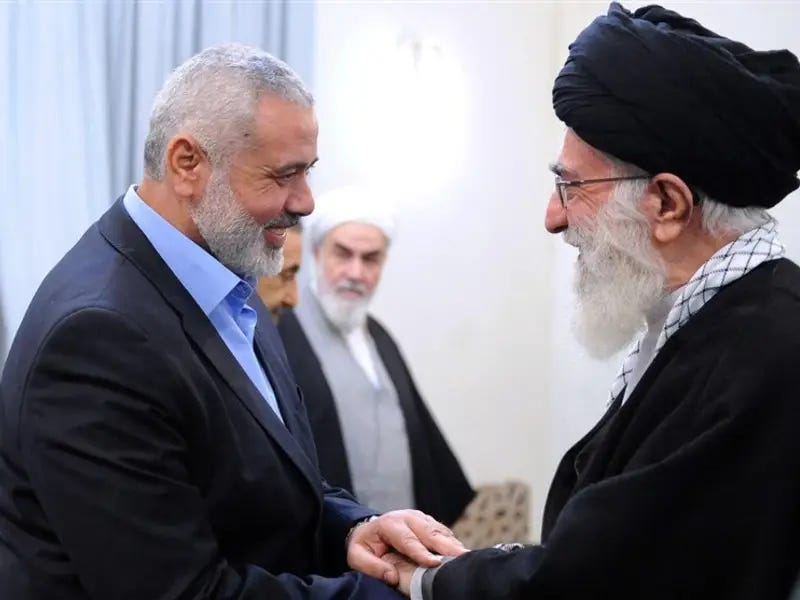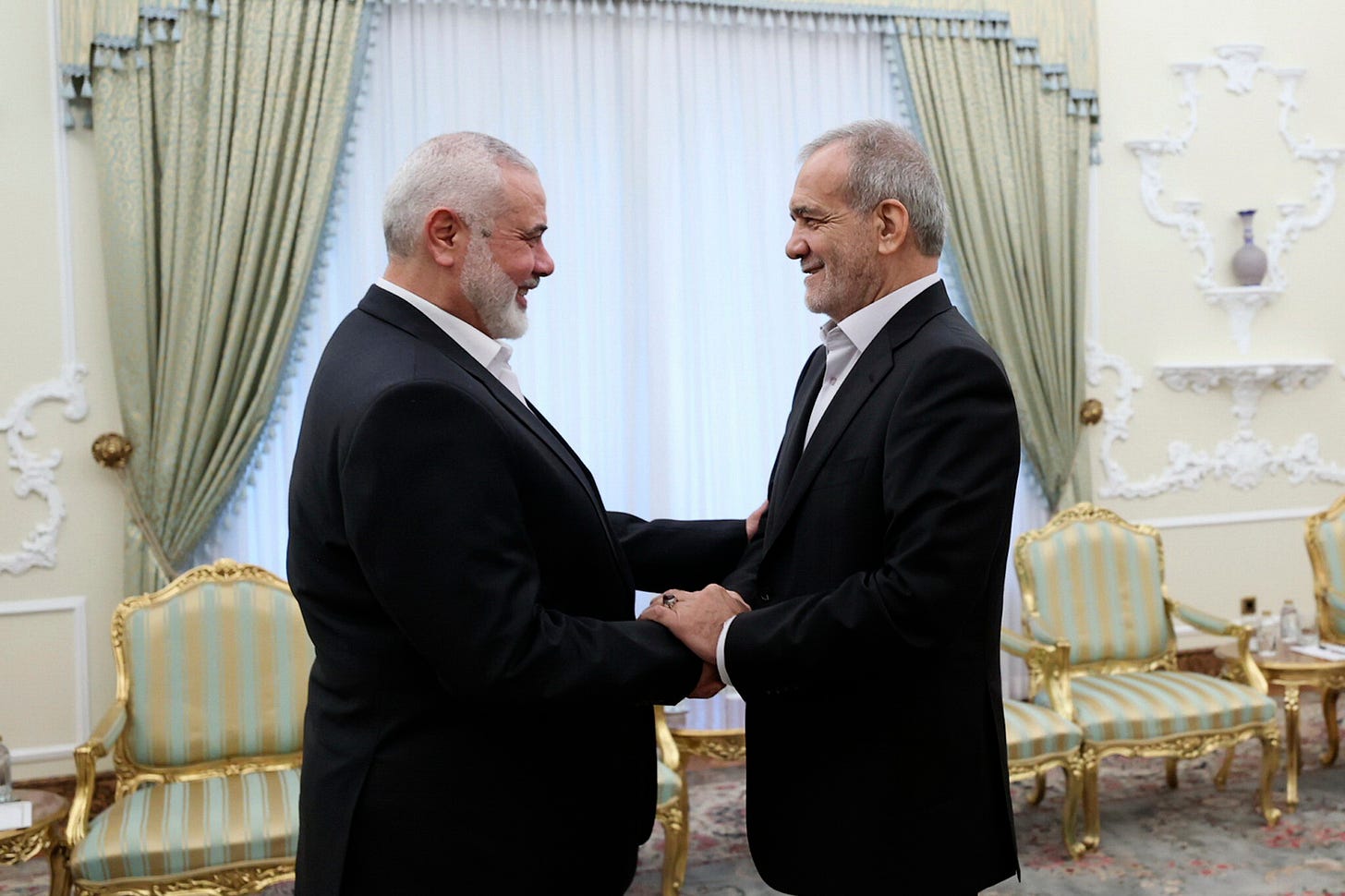Assassination of Hamas Leader in Tehran Escalates Israel-Iran Tensions, Threatens Regional Stability
The assassination of top Hamas leader Ismail Haniyeh in Tehran represents a critical escalation in the already volatile Middle Eastern geopolitical landscape. This event underscores a severe security breach for both Iran and Hamas and occurs amid heightened tensions following Israel's recent assassination of Hezbollah's military commander Fuad Shukr, in response to an attack on the Golan, for which Hezbollah denied responsibility of it.. Here is an analysis of the implications and consequences of this development:
Implications
It will have multiple implications in Iran, Israel, the region and globally.
1- Iran's Response:
- Aggressive Retaliation: Iran is expected to respond aggressively, likely altering the rules of engagement with Israel, pushing the redlines further. It is unlikely to see direct military action, however, Iran would leverage proxy groups in the region to increase their attacks on Israeli interests inside the country and outside.
- Political Impact: The assassination could undermine the new moderate Iranian government, which has been seeking to improve relations with Western countries. This event might empower hardliners who favor a more confrontational stance against Israel and its allies.
2- Israel's Domestic Affairs:
- Short-term Victory: The Netanyahu government may view this as a tactical win, showcasing its ability to target high-profile adversaries. However, the potential for escalating violence could lead to longer-term instability and security challenges.
- Impact on ceasefire deal: This assassination is likely to stop or significantly delay any ongoing or potential ceasfie negotiations between Hamas and Israel, complicating efforts to reach a resolution to bring the Israeli hostages home, and possibly diminishing public support for the government if the conflict intensifies.
3- Regional & Global Impact:
- Increased Tensions: Iran's regional allies, including Hezbollah and various militias in Iraq and Syria, and Houthis in Yemen may escalate their activities against Israel, increasing the risk of broader regional conflict.
- Destabilization: The event could further destabilize the region, drawing in neighbouring countries and possibly affecting global trading markets and international trade routes.
Brief Bio of Ismail Haniyeh
Ismail Haniyeh, a prominent Palestinian political leader, served as Chairman of the Hamas Political Bureau from 2017 and Prime Minister of Palestine in 2006. He was a senior figure within Hamas, an Islamist militant organization. Born on January 29, 1962, in the Al-Shati refugee camp in Gaza, Haniyeh rose through the ranks of Hamas due to his leadership skills and dedication to Hamas resistance agendas.
Political Career
Haniyeh became a key member of Hamas, eventually leading its political bureau. He is known for his close association with the late Sheikh Ahmed Yassin, a co-founder of Hamas.
In 2006, following Hamas' victory in the Palestinian legislative elections, Haniyeh was appointed Prime Minister of the Palestinian Authority. However, internal conflicts with Fatah led to a split, and he continued to govern Gaza after Hamas seized control in 2007. Consequently, president Mahmoud Abbas dismissed him, however he remained as the main leader of Gaza until until February 2017, when he was replaced by Yahya Sinwar.
Significant Role
Due to security concerns and benegeting from more political manuveration, Haniyeh moved to Qatar where he continues to influence Hamas' policies and strategies. He played a crucial role in mediating between different factions within Hamas and navigating the complex political landscape of the Middle East, including relationships with Iran, Qatar, Turkey and other regional powers.




